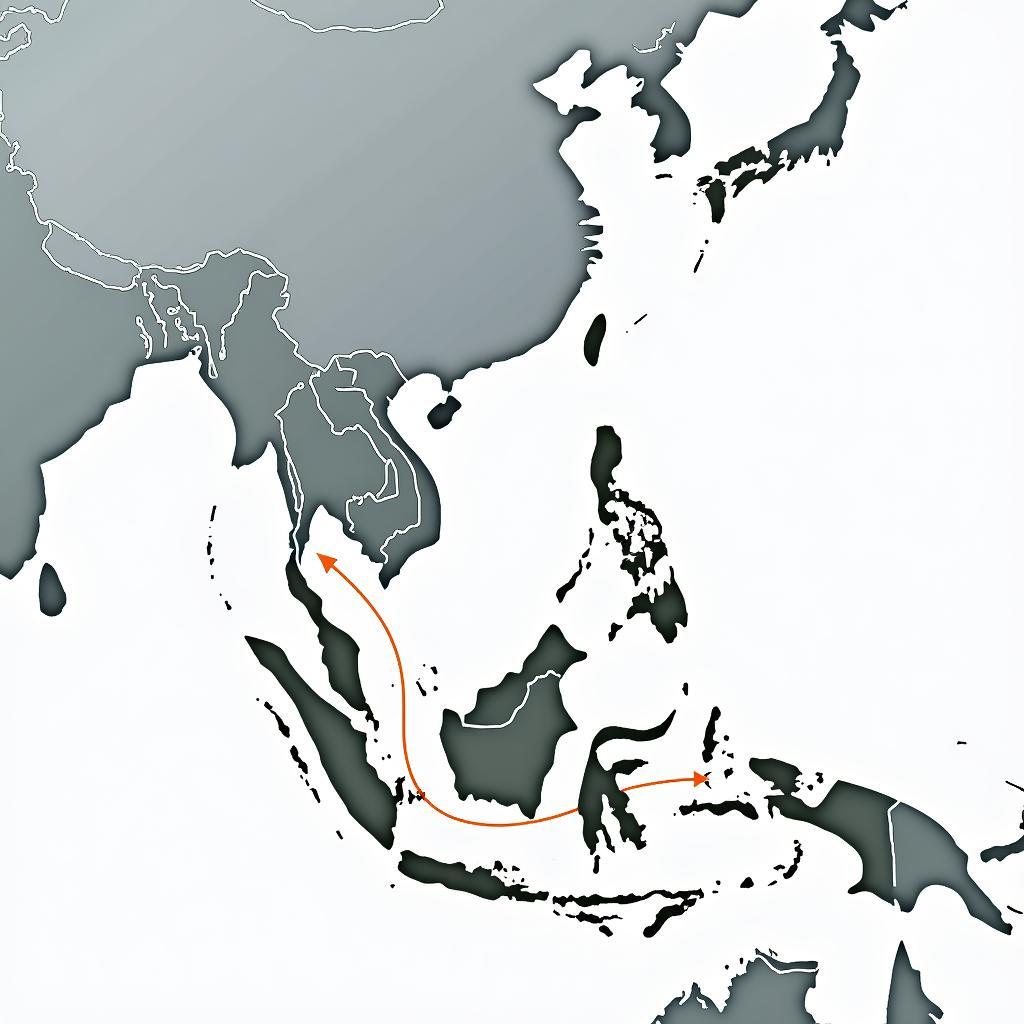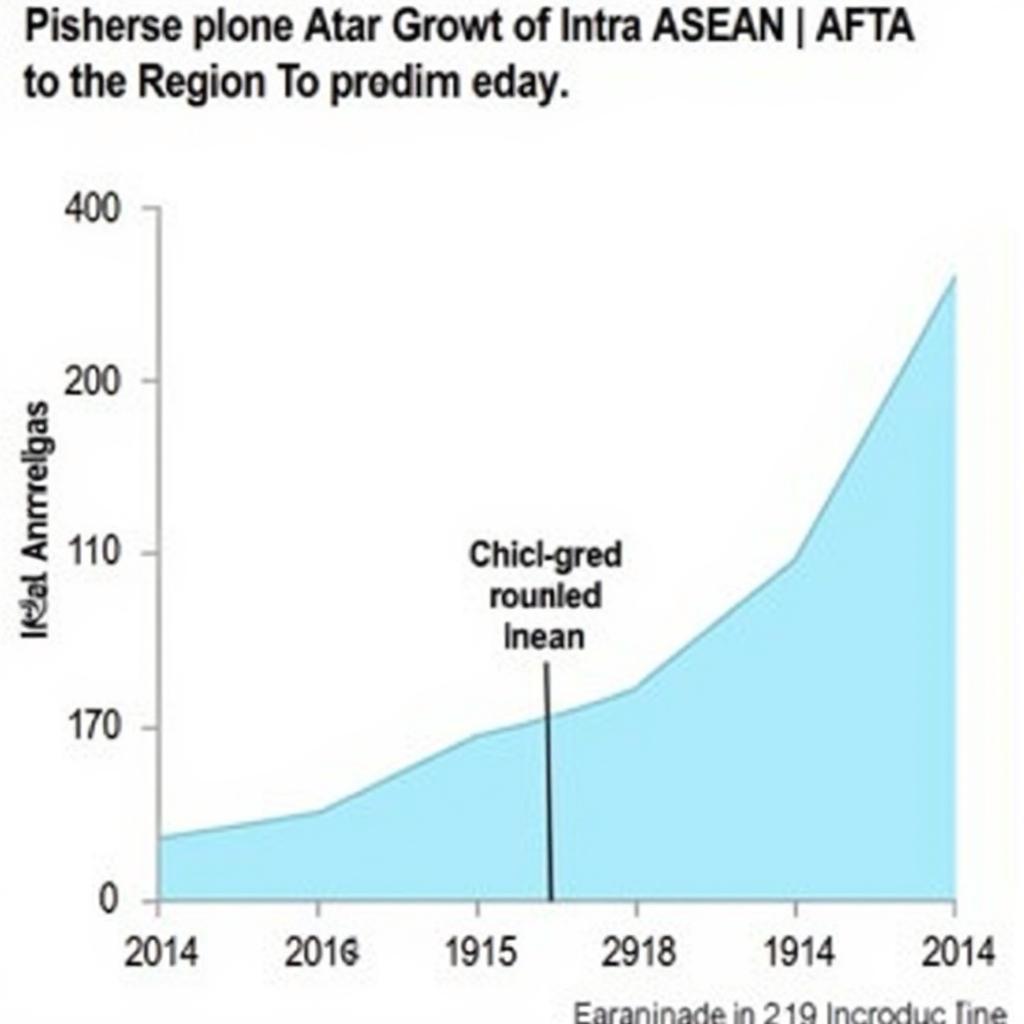The Asean Bloc, officially the Association of Southeast Asian Nations, stands as a testament to regional cooperation and economic integration. Formed in 1967, this dynamic intergovernmental organization has played a pivotal role in shaping the political, economic, and social landscape of Southeast Asia. This article delves deep into the intricacies of the ASEAN bloc, exploring its history, objectives, challenges, and future prospects.  ASEAN Bloc: Economic Integration in Southeast Asia
ASEAN Bloc: Economic Integration in Southeast Asia
A Deep Dive into the ASEAN Bloc’s History and Formation
The seeds of the ASEAN bloc were sown during a period of intense Cold War rivalry and regional instability. Five founding members – Indonesia, Malaysia, the Philippines, Singapore, and Thailand – came together with a shared vision of fostering peace, stability, and cooperation. The Bangkok Declaration, signed on August 8, 1967, marked the formal establishment of ASEAN, laying the groundwork for future collaborations.
The Expanding Influence of the ASEAN Bloc
Over the years, the ASEAN bloc expanded its membership, welcoming Brunei Darussalam, Vietnam, Laos, Myanmar, and Cambodia. This expansion reflected the growing recognition of ASEAN’s importance as a platform for regional dialogue and cooperation. The inclusion of diverse nations enriched the bloc’s cultural tapestry and expanded its economic potential.
The Core Objectives of the ASEAN Bloc
The ASEAN bloc’s primary objectives revolve around promoting regional peace and stability, accelerating economic growth, fostering social progress, and developing cultural cooperation among member states. These objectives are pursued through a variety of mechanisms, including dialogues, summits, and joint initiatives.
Economic Integration within the ASEAN Bloc
Economic cooperation has been a cornerstone of the ASEAN bloc since its inception. The ASEAN Free Trade Area (AFTA) aims to reduce tariffs and non-tariff barriers, facilitating the free flow of goods and services within the region. This has led to increased trade and investment, contributing significantly to the economic growth of member states.  Impact of the ASEAN Free Trade Area (AFTA)
Impact of the ASEAN Free Trade Area (AFTA)
“The ASEAN bloc’s strength lies in its ability to bring together diverse nations under a common platform for economic collaboration. This has not only boosted trade but also fostered a sense of shared prosperity.” – Dr. Maria Santos, Economist specializing in Southeast Asian economies.
Challenges Facing the ASEAN Bloc
While the ASEAN bloc has achieved significant progress, it also faces several challenges. These include disparities in economic development among member states, territorial disputes, and the need to strengthen regional institutions. Addressing these challenges effectively is crucial for the bloc’s continued success.
Navigating Geopolitical Dynamics in the ASEAN Bloc
The asean bloc countries navigates a complex geopolitical landscape, with various external powers vying for influence in the region. Maintaining a balanced approach and upholding the principles of neutrality and non-interference are critical for the ase block to preserve its autonomy and promote regional stability.
The Future of the ASEAN Bloc
The ASEAN bloc is poised for continued growth and development in the coming years. Further deepening economic integration, strengthening regional institutions, and promoting sustainable development are key priorities. The bloc also seeks to play a more prominent role in global affairs, advocating for the interests of Southeast Asian nations on the international stage.
 Future Prospects of the ASEAN Bloc
Future Prospects of the ASEAN Bloc
“The future of the ASEAN bloc depends on its ability to adapt to changing global dynamics and leverage its collective strengths. The bloc’s commitment to regional cooperation and integration positions it well for continued success.” – Professor Lee Wei Ming, Political Scientist specializing in ASEAN affairs.
Conclusion
The ASEAN bloc has emerged as a driving force for regional cooperation and integration in Southeast Asia. Despite facing challenges, the bloc’s commitment to its core objectives and its ability to adapt to changing circumstances hold the key to its continued success. The asean blockchain can learn from initiatives like the asean blockchain association and events such as the asean blockchain summit 2018 malaysia. The ASEAN bloc remains a vital platform for promoting peace, stability, and prosperity in the region, and its future trajectory will undoubtedly shape the course of Southeast Asia in the years to come.
When you need assistance, please contact us at Phone: 0369020373, Email: aseanmediadirectory@gmail.com or visit our address: Ngoc Lien Village, Hiep Hoa, Bac Giang, Vietnam. We have a 24/7 customer service team.
